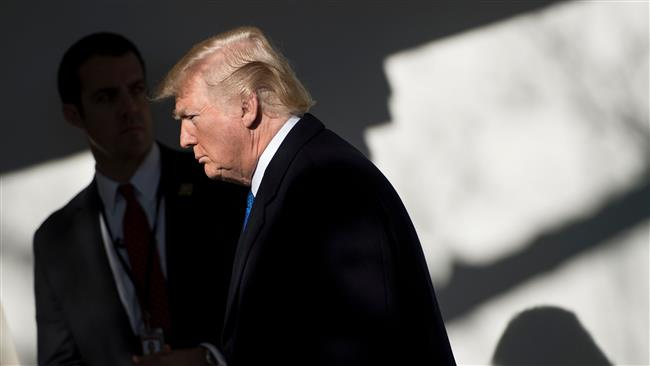Trump’s shutdown government

The first anniversary of US President Donald Trump has been marred by a US government shutdown, the reason: failure of Congress and Trump administration to agree on a funding the deal.
Despite attempts by Trump and the Republicans who control both the Senate and House of Representatives, they could not come to terms with their Democratic colleagues to kick start a US government closure and this is the 19th times over the past four decades the government in America is shutdown.
Similarly, in 2013, when former president Barack Obama was in office, the government was closed for 16 days following a dispute between the Republican and their Democratic peers over the funding of the 2010 Patient Protection and Affordable Care Act, often shortened to the Affordable Care Act (ACA) or nicknamed Obamacare, an act originally aimed at expanding health insurance coverage for Americans.
The failure to agree on a funding deal means the US government has technically run out of money and has no way but to close all but essential operations nationwide.
In October 2013 and under Obama, more than 800,000 federal employees were furloughed, and now under Trump whose administration's major and overriding slogan was 'America First', more than one million employees of the US public and service sectors have to stay at home; a negative mark on Trump administration's credit record that will put under serious threat the future White House policies.
There are different speculations about the reason behind the shutting down of the US government. But many observers are of the view that the dispute among US lawmakers over the Deferred Action for Childhood Arrivals (DACA) established by the Obama Administration in June 2012 is the real reason.
Based on the US immigration policy defined by DACA, the country allows some individuals who entered the United States as minors, and had either entered or remained in the country illegally, to receive a renewable two-year period of deferred action from deportation and to be eligible for a work permit.
As of 2017, approximately 800,000 individuals—referred to as Dreamers after the DREAM Act bill—were enrolled in the program created by DACA.
However, Trump administration in September 2017 rescinded the policy, urging the Congress to work towards finding a substitute within six months.
Trump, over the past months have been critical of the immigrants living in the US and the country's immigration policies. But not all his Republican colleagues have supported his ideas on the immigration policies. Paul Ryan, Republican Speaker of the United States House of Representatives and John McCain senior Senator from US state of Arizona, to name a few, are among those opposing the White House immigration policy.
It is the same policy that encouraged the Trump administration to ban immigrants from Muslim nations.
Trump's Muslim-ban policy has already caused outrage and discontent both inside the US and elsewhere and now the immigrants in America who have been given the right to work and study in the country based on DACA, are facing a far worse situation.
While Trump has proved unyielding in his bid to bar immigrants and refugees from entering to the United States and deporting them from the country, they on the other hand, want to step in at any price and the US president remains insulting them. Both the Americans and other people in the world are still shocked at Trump's 'shithole' remarks.
“Why are we having all these people from shithole countries come here?” Trump said at a meeting with US lawmakers on January 11, referring to countries like Haiti, El Salvador, as well as some African countries.
“Why do we need more Haitians?” Trump said, according to people familiar with the meeting. “Take them out.”
But the Americans and the US public opinion are against Trump's approach towards the Deferred Action for Childhood Arrivals (DACA). An ABC News poll suggests that 86 percent of Americans are supportive of DACA.
Moreover, results from a recent poll by Pew Research Center revealed that Trump's approval among African-Americans has dropped from 14 percent to 7.
The approval of Donald Trump is expected to go into nosedive parallel to the increasing pace of pressures his administration put on the immigrants and the US religious and ethnic minorities in the US.
Translator: Reza Bahar
Source: IRNA

